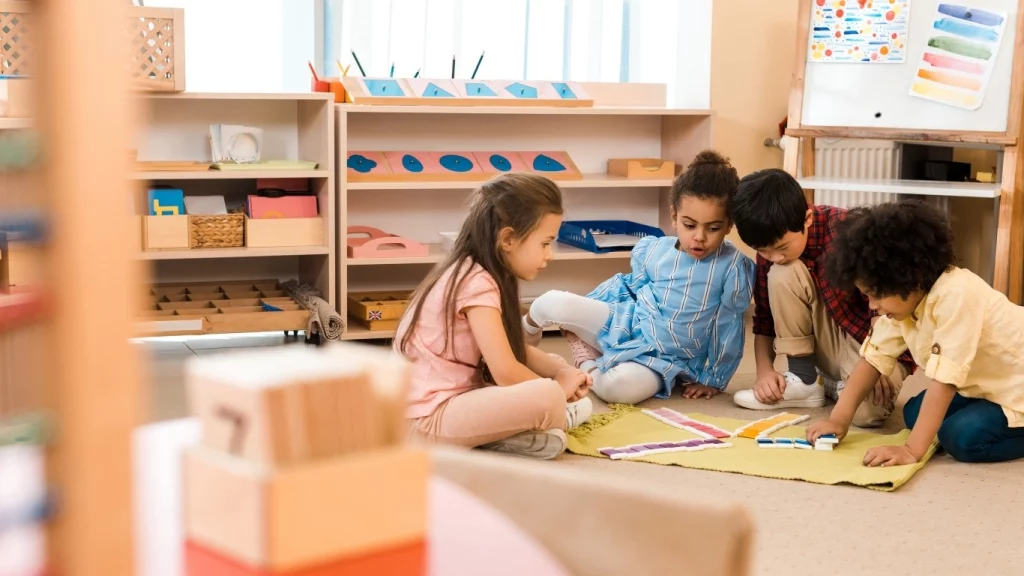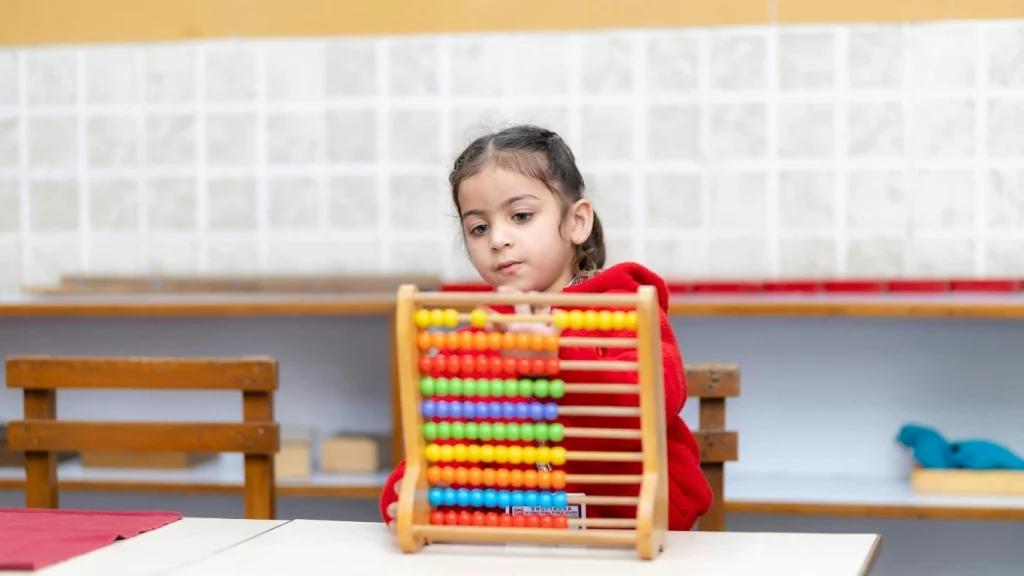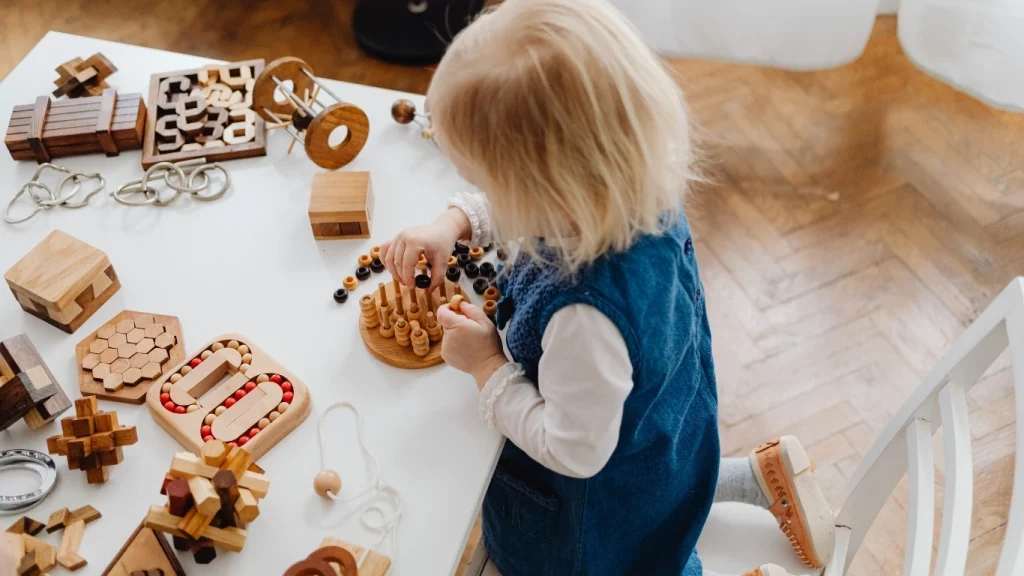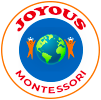POTENTIAL BENEFITS OF A MONTESSORI EDUCATION

Choosing the right preschool for your child is one of the most important decisions you’ll make as a parent. With so many early education options available, each offering different approaches to teaching and learning, understanding what sets a Montessori education apart can be incredibly helpful.
Montessori schools offer a unique learning experience that has been proven to benefit children in several areas, beginning as early as preschool.

Understanding the Montessori Approach
Montessori education is a child-centered learning method where students are encouraged to take the lead in their own development. Children choose activities from a carefully curated selection of developmentally appropriate tasks and are allowed to engage with these activities for as long as they remain interested. Rather than relying on lectures or a rigid schedule, learning happens organically through discovery, exploration, and hands-on experience.
Teachers in Montessori classrooms serve more as guides or facilitators than traditional instructors. There are no standardized tests or grades, instead, the focus is on cultivating curiosity, independence, and confidence. Additionally, classrooms are often composed of mixed-age groups, allowing younger children to learn from older peers and older children to develop leadership skills.

Social and Emotional Development
A 2006 study found that children enrolled in Montessori programs demonstrated stronger social and behavioral development compared to their peers in traditional schools. The emphasis on collaboration, respect, and empathy in mixed-age classrooms helps nurture emotional intelligence and social maturity from an early age.
Children learn to solve conflicts peacefully, respect each other’s personal space, and work together toward common goals, skills that are essential not just in school, but in life.

Building a Healthy Self-Concept
Montessori education is holistic, meaning it nurtures not only a child’s intellectual development but also their emotional and psychological well-being. Because children are allowed to learn at their own pace and follow their interests, they develop a healthy sense of autonomy and self-worth.
This method fosters a strong self-concept, children learn who they are, what they’re capable of, and how they fit into the world. A positive self-image formed early in life contributes significantly to future academic success and emotional resilience.

Strength in Math and Science
A study conducted in 2003 found that students who attended Montessori programs from preschool through fifth grade outperformed their peers in high school math and science. The use of tactile, visual, and conceptual materials in Montessori classrooms helps children grasp abstract mathematical and scientific concepts more effectively.
For example, children learn how squaring or cubing affects numbers by physically manipulating objects. This hands-on experience solidifies complex ideas in a way that is both accessible and engaging.
Fostering Life Skills and Independence
Montessori classrooms encourage independence from an early age. Children learn to seek answers, assess their own work, and correct their mistakes without immediate adult intervention. They're also taught practical life skills, like cleaning up after themselves, organizing materials, and following a routine.
These habits prepare students for future academic success and instill a lifelong love of learning. Montessori graduates often stand out as self-motivated, organized, and capable individuals.
Is Montessori Right for Your Child?
While Montessori education offers many benefits, it’s not a one-size-fits-all solution. Some children, particularly those who are very energetic, loud, or heavily imaginative, may thrive better in more play-based or flexible environments. Montessori is often ideal for children who enjoy independent work, prefer quiet spaces, and benefit from structured, hands-on learning.
It’s essential to consider your child’s unique personality, preferences, and developmental needs when choosing a preschool.


Look for Proper Montessori Credentials
Since the term “Montessori” is not trademarked, any school can claim the label. To ensure an authentic experience, look for schools with Montessori educators who are trained in this specific educational philosophy and methodology.
A high-quality Montessori school will also emphasize cultural awareness and diversity, encouraging children to respect and appreciate different backgrounds and traditions.
Explore Montessori with Joyous Montessori, Keller, TX
Montessori schools are generally more accessible for preschool-aged children, making this a perfect time to explore your options. If you’re curious about how Montessori education can benefit your child, contact Joyous Montessori, Keller, TX, to learn more about our programs, curriculum, and enrollment process.
We’re here to help you decide if a Montessori environment is the right fit for your child’s growth and development.
